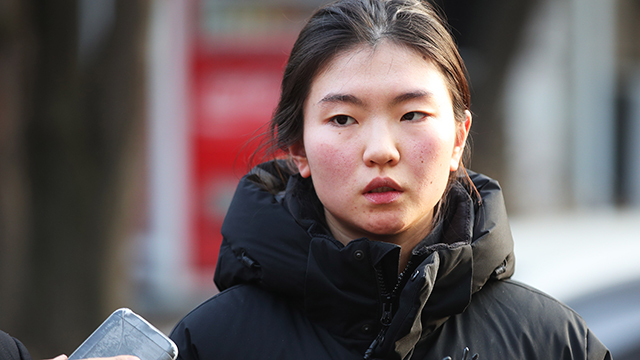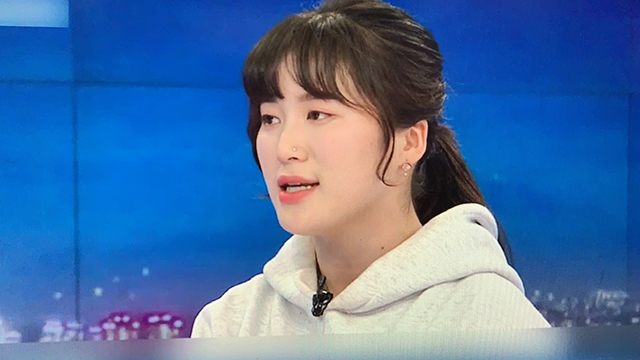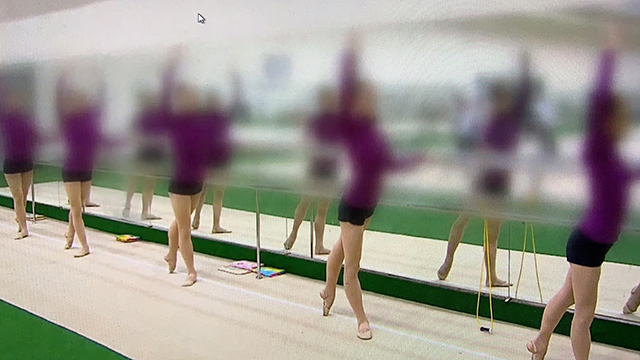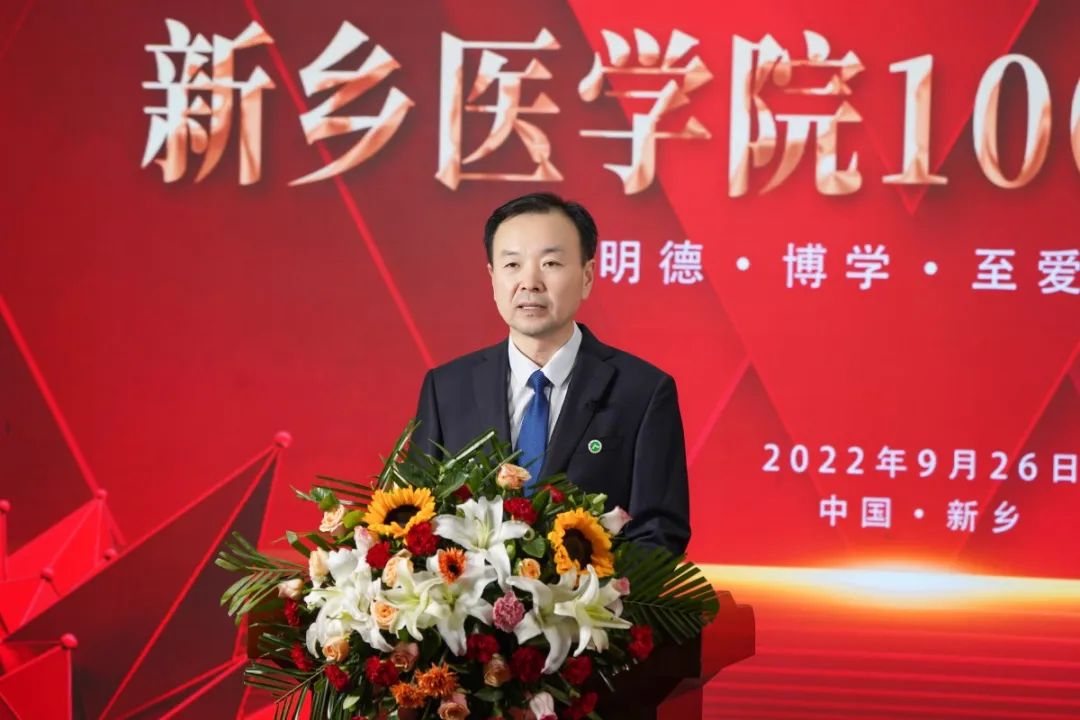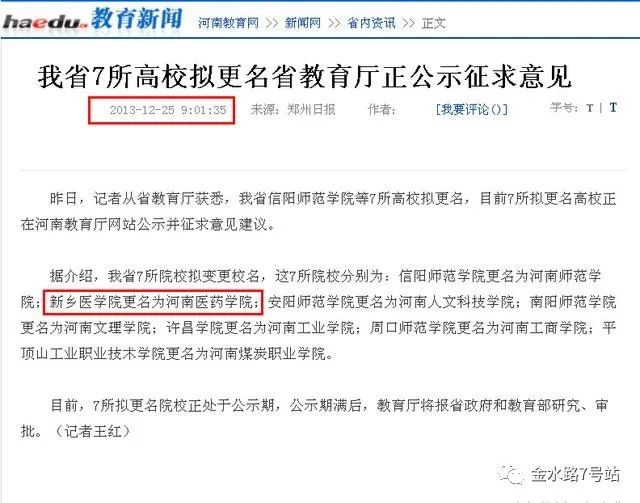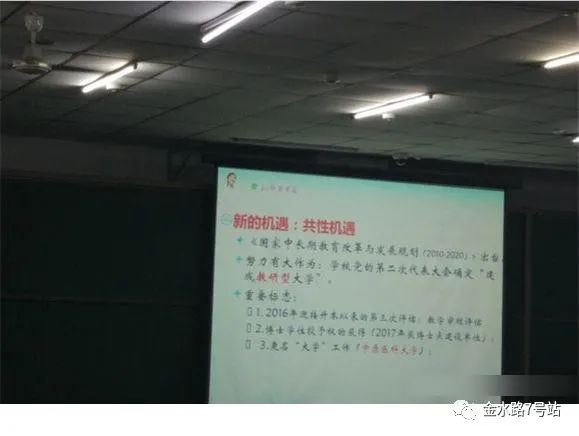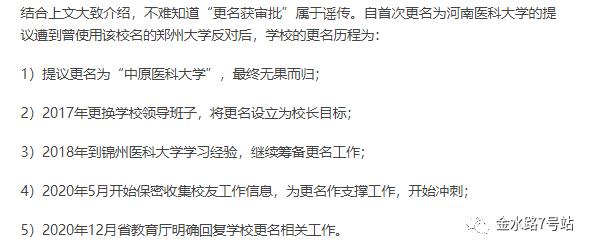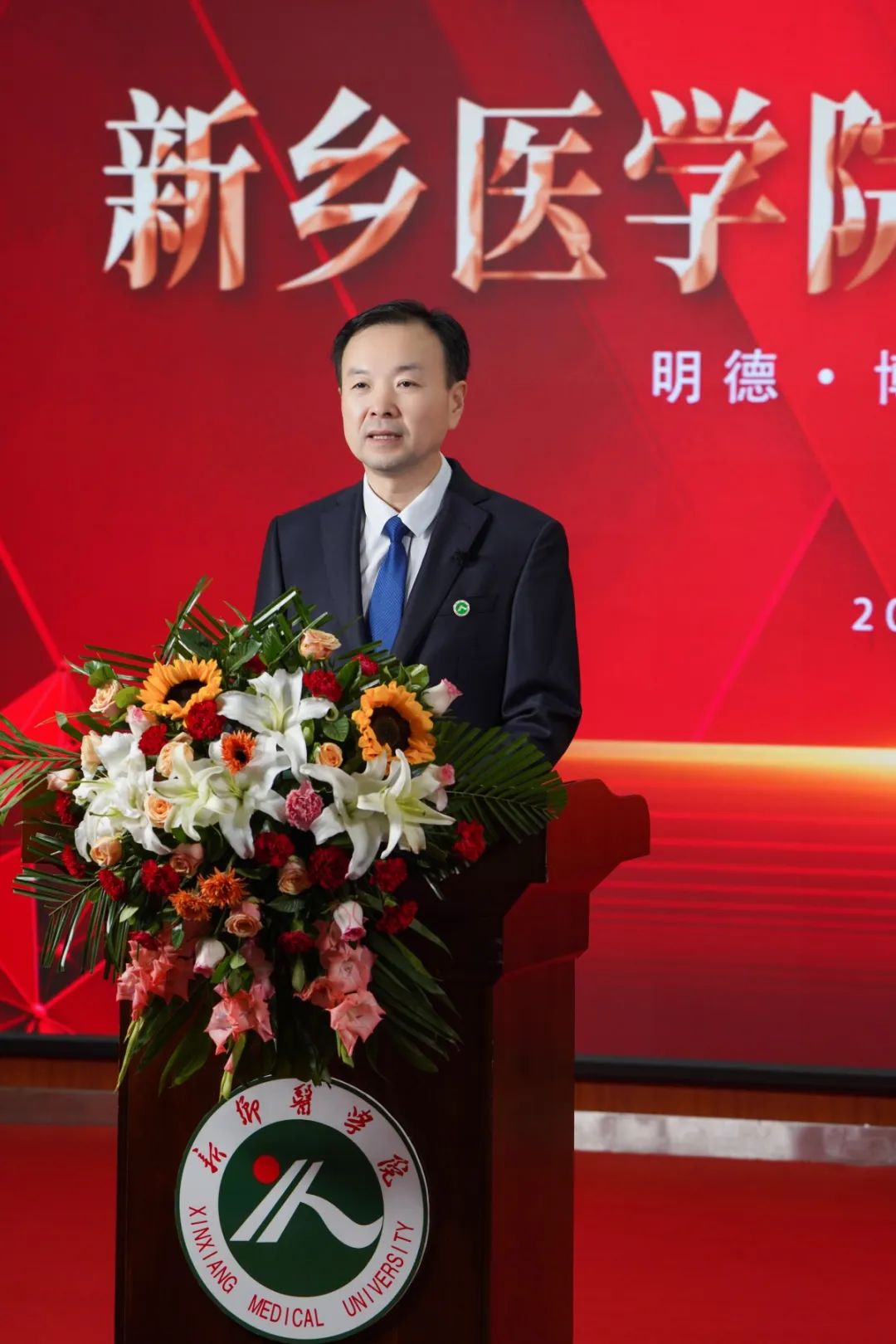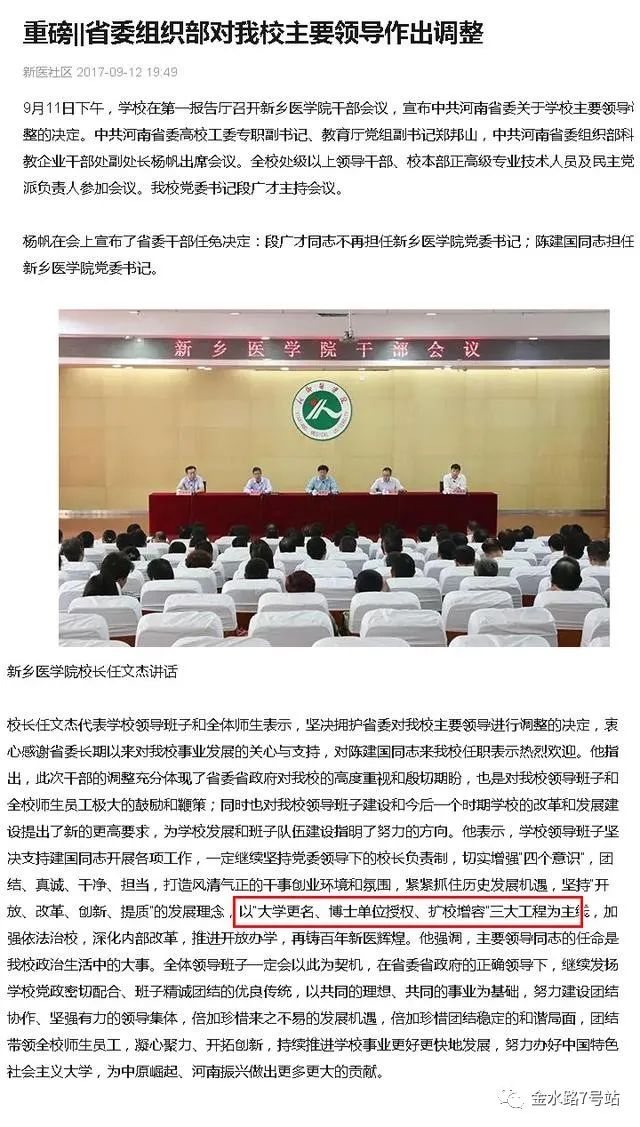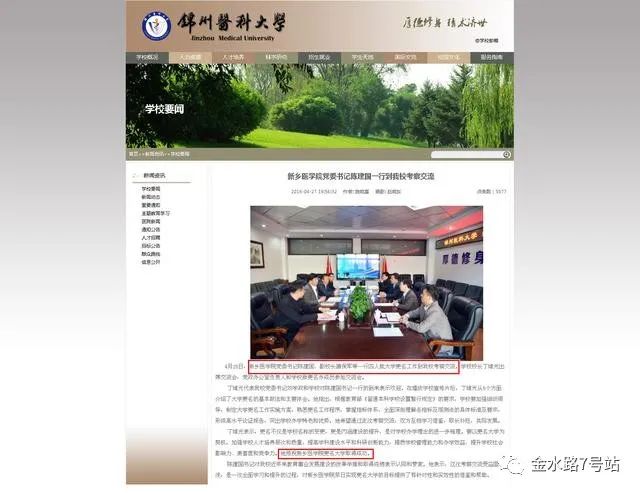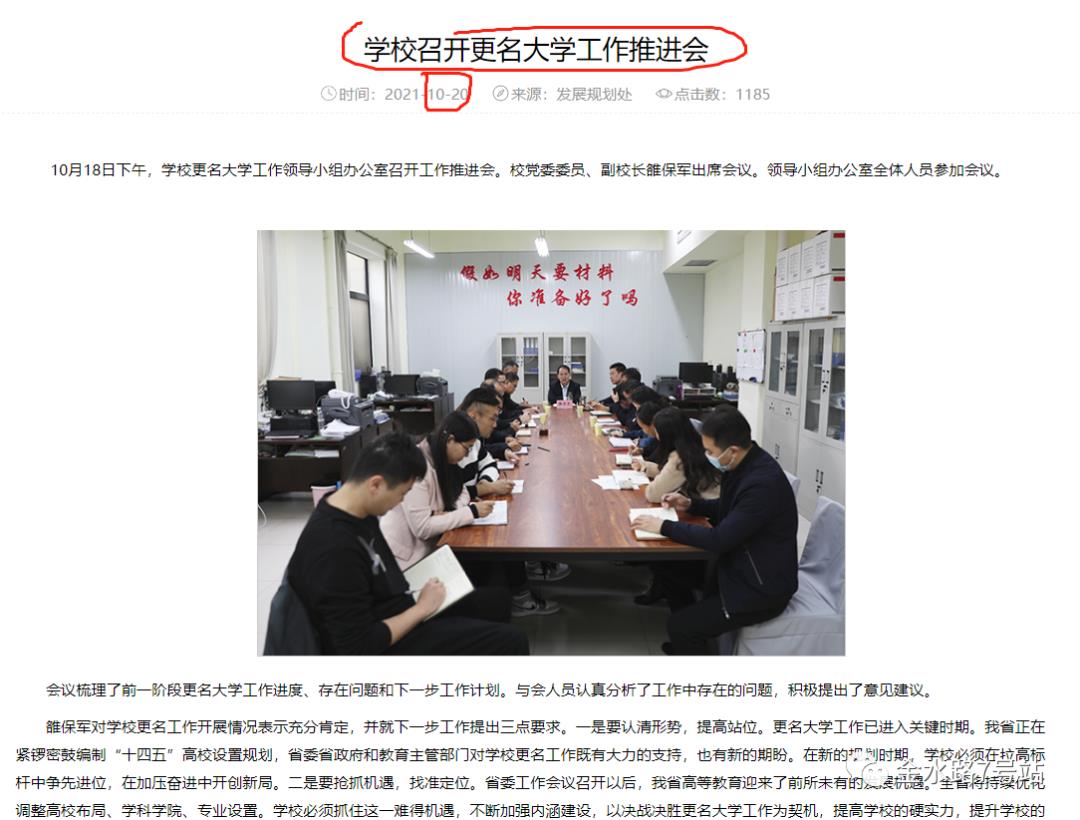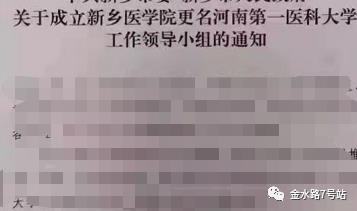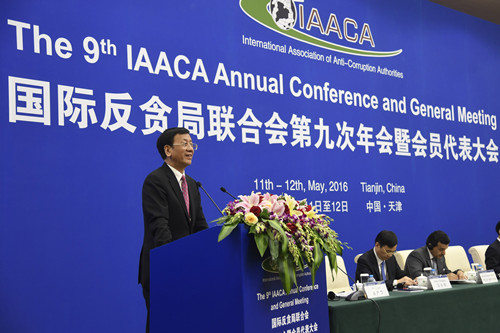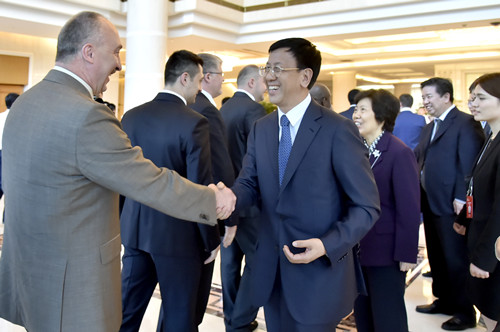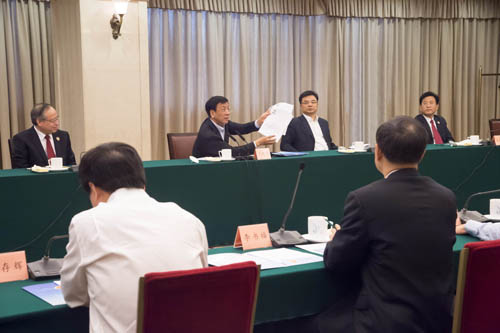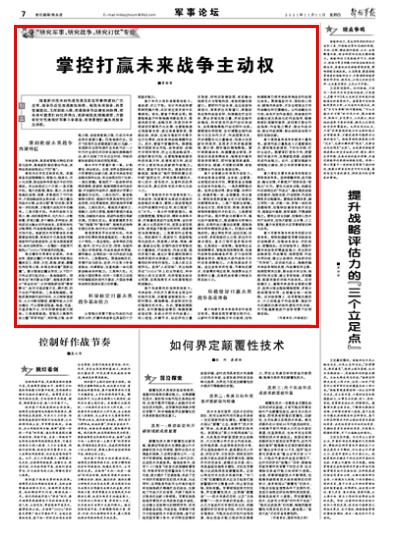General Office of Hainan Provincial People’s Government on Printing and Distributing
"Hainan Province’s Extraordinary Action Plan to Stabilize the Economic Market" and
Notice of "Hainan Province’s Special Measures to Stabilize Economy and Help Enterprises Relieve Poverty"
Qiong Fu Ban [2022] No.28
The people’s governments of cities, counties and autonomous counties and the units directly under the provincial government:
The action plan of Hainan Province for supernormal stabilization of economic market and the special measures for the development of Hainan Province to stabilize the economy and help enterprises out of difficulties have been agreed by the provincial party committee and government, and are hereby printed and distributed to you. Please conscientiously implement them according to the actual situation.
General Office of Hainan Provincial People’s Government
June 5, 2022
(This article has been deleted)
Hainan province’s unconventional action plan to stabilize the economic market
(public version)
According to the spirit of Politburo meeting of the Chinese Communist Party on April 29, 2022 and the spirit of the national video conference on stabilizing the economy, and in accordance with the decision-making arrangements of the first meeting of the Financial and Economic Committee of the Eighth Provincial Party Committee and the provincial conference on stabilizing the economy, in order to unite and lead the broad masses of cadres and masses in the province to strengthen their determination, enhance their confidence, resist the pressure and face difficulties, increase the economic growth momentum, tap the high-quality development potential and stimulate the open and innovative vitality of the whole society with unconventional understanding, measures and actions. Promote the main economic indicators to "bottom out in April, rebound in May, and return to normal in June", ensure the steady economic growth and overall full employment in the second quarter of the province, keep the annual economic growth rate in the forefront of the country, and greet the victory of the Party’s 20th National Congress with excellent results. This plan is specially formulated.
I. Action time
May 27th to December 31st, 2022.
Second, the goal of action
The second quarter:The province’s economic growth rate bottomed out in April, turned positive and rebounded in May, fully recovered in June, and achieved certain growth in the second quarter. The growth rate of fixed assets investment bottomed out in April, turned positive in May, rebounded rapidly in June, and achieved steady growth in the second quarter. The decline in the total retail sales of social consumer goods bottomed out in April and narrowed in May. The growth rate rebounded rapidly in June and strived to turn positive in the second quarter. Trade in goods and services maintained a good momentum of development and achieved rapid growth in the second quarter. The urban survey unemployment rate has dropped to below 6% in the second quarter.
The third quarter:The growth rate of major economic indicators such as the province’s GDP (regional GDP), investment in fixed assets, and total retail sales of social consumer goods has basically returned to normal levels, and the cumulative economic growth rate has steadily rebounded. Foreign trade continued to maintain a good growth trend. The urban survey unemployment rate has further moved closer to 5.5%.
Annual goal:We will strive to achieve the economic and social development goals set by the province at the beginning of the year, ensure the steady and rapid growth of GDP, and rank among the top in the country. The growth rate of major economic indicators such as fixed asset investment, total retail sales of social consumer goods, and total import and export of goods and services has reached a good level in the country. The urban survey unemployment rate remained at around 5.5%. Do everything possible to ensure that "the epidemic situation should be prevented, the economy should be stabilized, and development should be safe".
Third, the action mechanism
(A) the establishment of up-and-down collaborative promotion mechanism
Under the leadership mechanism of the Financial and Economic Committee of the Provincial Party Committee, led by the executive deputy governor of the provincial government and attended by the deputy governors in charge of various fields, relying on the economic situation analysis system of the provincial government, a provincial-level work promotion mechanism for stabilizing the economic market was established to comprehensively judge the overall situation, promote the full implementation of key tasks, and plan to strengthen policy measures. All cities, counties and provincial departments have established a working mechanism to stabilize the economic market, comprehensively implemented the decision-making and deployment of stabilizing the economic market, thoroughly implemented the responsibilities, and effectively solved specific problems. (Responsible units: Provincial Development and Reform Commission, other departments at the provincial level, and municipal and county governments)
(B) the establishment of a unified evaluation mechanism.
The Provincial Development and Reform Commission takes the lead, combined with the working mechanism of "quarterly grasping and monthly tracking", and carries out a phased comprehensive evaluation of stabilizing the economic market in the province on a quarterly basis. All cities, counties and provincial departments simultaneously carry out special assessments of stabilizing the economic market in their own regions and fields, forming a unified and separate evaluation system. (Responsible units: Provincial Development and Reform Commission, other departments at the provincial level, and municipal and county governments)
(C) the establishment of a trinity supervision mechanism
The Provincial Development and Reform Commission took the lead in compiling and forming a list of work tasks, and established a mechanism for stabilizing the economic market with provincial departments to track the overall progress of the action and the promotion of key tasks in a normal way. Simultaneously establish a notification and supervision system. Focusing on the implementation of the action to stabilize the economic market, the Provincial Federation of Industry and Commerce took the lead in establishing a feedback and problem-reflecting mechanism for market participants, and the provincial digital transformation work class took the lead in establishing a monitoring mechanism for citizens’ sense of gain, forming a good momentum for the whole society to promote the implementation of the work. (Responsible units: Provincial Development and Reform Commission, Provincial Federation of Industry and Commerce, Provincial Digital Transformation Class, other relevant departments at the provincial level, and municipal and county governments)
IV. Action measures
(A) unconventional key support to strengthen investment
1. Add annual investment target for top pressure.
On the premise of ensuring the safety and quality of construction, we will implement the plan to move forward the investment projects throughout the year, accelerate the progress of the projects under construction, start the planned projects ahead of schedule, and exchange time for increments, so as to strive for the annual investment growth rate of the whole province to reach 10%, which is 2 percentage points higher than the target at the beginning of the year. (Lead unit: Provincial Development and Reform Commission, other relevant departments at the provincial level, and municipal and county governments)
Formulate an investment task adjustment plan, make overall adjustment and decomposition of pressurized investment tasks in different fields, cities and counties, and strengthen the main responsibility of investment growth. (Lead unit: Provincial Development and Reform Commission, other relevant departments at the provincial level, and municipal and county governments)
2. Vigorously strengthen the project planning reserve.
Establish a strategic and basic project research reserve mechanism. Establish a forward-looking and guiding industrial project planning mechanism. Initiate the preparation of major infrastructure development plans in Hainan, and strive for high-quality infrastructure development pilots. Carry out special actions for project planning. (Lead units: Provincial Development and Reform Commission, Provincial Department of Transportation, Provincial Department of Industry and Information Technology, Provincial Health and Wellness Commission, Provincial Department of Education, Provincial Department of Water Affairs, municipal and county governments, Hainan Power Grid Corporation)
Work out the guarantee plan for the basic elements of major industries. (Lead unit: Provincial Development and Reform Commission, Provincial Department of Industry and Information Technology, Provincial Department of Natural Resources and Planning)
In accordance with the relevant provisions, introduce third-party institutions to establish an assessment mechanism for project planning in cities, counties and parks, and carry out regular assessments. (Lead unit: Provincial Development and Reform Commission)
We will improve the provincial departments’ guidance on project planning and the resumption mechanism of project declaration results for cities and counties, and support cities and counties to strengthen the strength of project planning classes by introducing professional teams and purchasing services. (Lead unit: Provincial Development and Reform Commission, Provincial Department of Finance, municipal and county governments)
3. Strengthen the industrial investment promotion year.
Strengthen the dynamic adjustment mechanism of industrial parks. Formulate and implement the assessment and evaluation methods of the park to stimulate the power of the industrial agglomeration development platform. (Lead unit: Provincial Development and Reform Commission)
Accelerate the construction of high-quality industrial projects. Accelerate the construction of seed laboratory in Yazhouwan around winning the seed industry. Accelerate the creation of a public platform for deep-sea scientific and technological innovation. Vigorously promote the strong chain projects of millions of tons of ethylene and other industrial chains, and promote the completion and opening of Haikou International Duty Free City as scheduled. We will urge high-quality industrial projects such as Hainan Commercial Space Launch Area Construction Project and Sanya International Duty Free City Phase III to start as soon as possible and form a physical workload. Accelerate the preliminary work of offshore wind power demonstration projects, Hainan submarine data center and other projects. Ensure that the annual industrial investment will increase by 9% year-on-year. (Lead unit: Provincial Development and Reform Commission, other relevant departments at the provincial level, municipal and county governments, and owners of key projects)
Strengthen the driving force of industrial investment. Formulate some measures for the landing of major industrial projects in international tourism consumption centers. We will fully implement a series of policies and measures to support industrial project development planning and land security, and give land support to strategic emerging industries, advanced manufacturing industries, and private enterprises to invest in non-profit education, medical and health facilities. Increase the medium and long-term loans in the real economy, especially in the manufacturing industry, and keep the growth rate of loan balance basically synchronized with the nominal growth rate of the economy. Put the EIA service in the stage of planning and attracting investment to improve the predictability of EIA management. Give full play to the advantages of free trade port policy and Hainan’s resource endowment, continue to plan and generate high-quality industrial projects around the four leading industries, and do everything possible to attract multi-channel capital investment. (Lead units: Provincial Development and Reform Commission, Provincial Department of Natural Resources and Planning, Provincial Department of Ecology and Environment, Haikou Central Sub-branch of the People’s Bank of China, and provincial departments in charge of leading industries)
Establish a reward and punishment mechanism for industrial project promotion, and set up "Excellent Practice Award" and "Snail Award" for project promotion. (Lead unit: Provincial Development and Reform Commission, municipal and county governments)
4. Vigorously promote the upgrading and upgrading of infrastructure in the year.
Promote the connotation of project planning. Explore the preparation of the "five networks in one" three-year action plan and annual action plan, and coordinate the packaging planning of traditional and new infrastructure projects. Actively promote the construction of underground utility tunnel into the underground space utilization planning, and coordinate the planning and construction of pipe corridors and other underground municipal infrastructure in key areas. Start the whole island underground utility tunnel network planning. (Lead units: Provincial Development and Reform Commission, Provincial Department of Industry and Information Technology, Provincial Department of Transportation, Provincial Department of Water Affairs, Provincial Department of Housing and Urban-Rural Development, Provincial Department of Natural Resources and Planning, Hainan Power Grid Corporation, and municipal and county governments)
Expand the new amount of infrastructure construction. We will promote the start of major transportation projects such as the expansion project of the Greater Sanya section of the G98 Ring Expressway, the Yangpu Shugang Expressway and other major water conservancy projects such as the Niululing Irrigation District Project, vigorously promote the "six-water co-governance" project, and promote the completion of the approval and start-up of offshore wind power projects. Encourage banking institutions, especially policy development banks, to list infrastructure construction as the key area of annual credit supply. Strive for a year-on-year increase of 10% in major infrastructure investment in the "five networks". (Lead units: Provincial Development and Reform Commission, Provincial Department of Transportation, Provincial Department of Industry and Information Technology, Provincial Department of Water Affairs, Hainan Power Grid Corporation, municipal and county governments, Hainan Branch of CDB, and owners of key projects)
Preliminary work for speeding up infrastructure projects. Promote the reconstruction and expansion of Sanya Airport, meilan airport Phase III, Danzhou Airport, Dongfang Airport, "Haicheng Wending" comprehensive economic circle intercity rail, "Big Sanya" tourist economic circle intercity rail, Yangpu-Danzhou railway, capacity expansion and reconstruction of Haikou-Dongfang section of existing West Ring Expressway, Macun Port Phase III, reconstruction and expansion of G98 roundabout expressway Haikou-Boao section, Haikou-Danzhou expressway, etc. (Lead units: Provincial Development and Reform Commission, Provincial Department of Transportation, Provincial Department of Industry and Information Technology, Provincial Water Department, Provincial Emergency Management Department, Provincial Grain and Material Reserve Bureau, Hainan Power Grid Corporation, municipal and county governments, and owners of key projects)
5. Continue to promote public service facilities to make up for shortcomings.
Promote the collaborative innovation project of Hainan University, the State Key Laboratory of Marine Resources Utilization in the South China Sea, the platform for screening and evaluating new drugs and other scientific research promotion projects in colleges and universities, and urge the basic education projects such as supporting schools in Jiangdong New District and public cultural landmark projects such as the provincial art center to be implemented as soon as possible, accelerate the progress of medical and health projects such as the National Center for Disease Prevention and Control of Traditional Chinese Medicine, the International Precision Medicine Innovation Center of the Provincial People’s Hospital, and the National Emergency Medical Rescue Base Central Hospital (Hainan), and promote the construction of national regional medical centers such as Hainan Hospital of Shanghai Children’s Medical Center and Sanya Branch of Peking University Stomatology Hospital. (Lead units: Provincial Development and Reform Commission, Provincial Department of Science and Technology, Provincial Department of Education, Provincial Department of Tourism, Culture, Radio, Film and Sports, municipal and county governments, and owners of key projects)
6. Give full play to the leading role of local government special bonds
Accelerate the progress of special bond expenditure. For projects that have been arranged but cannot be spent or the expenditure progress is slow, the funds will be adjusted according to the procedures for other eligible projects. (Lead unit: Provincial Department of Finance, Provincial Development and Reform Commission, municipal and county governments)
Give full play to the role of special bond funds to incite. Making full use of special bonds in key investment fields can be used as the project capital policy, so as to realize that the newly applied special bonds can be used as capital. Strengthen the effective connection between credit funds and special bond funds, and give full play to the role of financial funds to incite. Establish a financing docking mechanism for government bond projects, speed up the examination and approval of four key projects, fully dock investment and financing supply and demand in various ways, and expand project funding channels. (Lead units: Provincial Development and Reform Commission, Provincial Department of Finance, Haikou Central Sub-branch of the People’s Bank of China, Hainan Supervision Bureau of China Banking and Insurance Regulatory Commission, Hainan Branch of CDB)
Improve the ability to accurately plan special bond projects. Establish a cross-departmental coordination mechanism for the management of special bonds, and accurately guide all cities, counties and provincial departments to continuously carry out project planning around the key investment of special bonds. Focus on new areas of special bond investment such as new infrastructure and new energy, and plan projects quickly. Give play to the overall planning function of provincial-level industry authorities such as water affairs, transportation, education, health, agriculture, etc., and dock cities and counties to package small and scattered projects in different industries and make overall plans. (Lead units: Provincial Development and Reform Commission, Provincial Department of Finance, Provincial Department of Agriculture and Rural Affairs, Provincial Department of Water Affairs, Provincial Department of Transportation, Provincial Department of Industry and Information Technology, Provincial Department of Education, Provincial Health and Wellness Committee)
7. Vigorously deepen the cooperation between the government and social capital.
Vigorously tap the commercial value of government investment projects, introduce private capital to participate in PPP (government and social capital cooperation) project construction, and urge a number of projects to start construction. Study and formulate the reform plan of provincial highway investment and financing system. Study and establish a provincial water investment and financing platform. (Lead units: Provincial Development and Reform Commission, Provincial Department of Finance, Provincial Department of Transportation, Provincial Department of Water Affairs, Provincial State-owned Assets Supervision and Administration Commission, and municipal and county governments)
Study and prepare the annual promotion plan of infrastructure REITs (Real Estate Investment Trust Fund) project, support qualified private capital to participate in the pilot project of infrastructure REITs in our province, and promote the construction of provincial demonstration REITs projects. (Lead unit: Provincial Development and Reform Commission, Provincial Department of Finance, Provincial Local Financial Supervision Bureau, and municipal and county governments)
8. Build a new project management mechanism.
Strengthen the project construction promotion mechanism. (Lead unit: Provincial Development and Reform Commission, Provincial Department of Housing and Urban-Rural Development, municipal and county governments)
Improve the reward and punishment mechanism for investment progress. (Lead unit: Provincial Development and Reform Commission, Provincial Department of Finance, Provincial Department of Natural Resources and Planning)
Establish an incentive mechanism for projects under construction. (Lead unit: Provincial Development and Reform Commission, municipal and county governments)
Strengthen the project tracking service mechanism. (Lead unit: Provincial Development and Reform Commission)
Strengthen communication and coordination of social investment projects. (Lead unit: Provincial Development and Reform Commission, Provincial State-owned Assets Supervision and Administration Commission and Provincial Department of Commerce)
9. Strengthen the protection of land and energy elements.
Accurately strengthen land security. Implement the land element guarantee mechanism for provincial key (major) projects. Classification and matching of new construction land indicators and forest land quota indicators to ensure the land demand of major projects. Deepen the reform of "standard land" and explore the "land acquisition after signing the contract" and "land acquisition and construction" of industrial park projects. Implement a green channel for the approval of land for key projects. (Lead unit: Provincial Department of Natural Resources and Planning)
Earnestly grasp the balance of cultivated land occupation and compensation. Vigorously promote the implementation of the special action of cultivated land reclamation to meet the needs of local project construction. Strengthen the overall planning of supplementary cultivated land indicators in the whole province, and take comprehensive measures such as grading guarantee, market-oriented transaction, striving for national overall planning, and temporary transfer of major projects in urgent need to ensure the demand for supplementary cultivated land indicators. (Lead unit: municipal and county governments, Provincial Department of Natural Resources and Planning)
Make every effort to break through the bottleneck of energy use. (Lead unit: Provincial Development and Reform Commission, relevant municipal and county governments)
(B) Extraordinary relief for market players.
10. Fully implement the policy of solving difficulties.
Focusing on the package of policies and measures recently issued by the State Council to stabilize the economy, and in accordance with the principle of "falling as soon as possible, making the best use of it, striving for more and getting early results", the first time warp will compact its tasks, fully implement them, formulate implementation rules and issue supporting policies. At the same time, we will do a good job in the implementation of the national and provincial series of relief and problem-solving policies this year, and maximize the superposition and amplification effect of the central and local policies. (Responsible unit: relevant departments at the provincial level)
We will build and improve Hainan’s policy redemption service system for enterprises, and incorporate all the support policies for enterprises and people at the central and provincial levels into the "Haiyihui" platform as required, so as to ensure that we can enjoy everything we know and get through the "key mile" from policy formulation to policy implementation. (Lead unit: provincial special class for optimizing business environment and relevant departments at the provincial level)
Do a good job in evaluating the consistency of policy orientation, speed up the research and formulation of policies to solve urgent difficulties and promote development, and prudently introduce policies that have a tightening effect on the economy. (Lead unit: Provincial Development and Reform Commission and relevant departments at the provincial level)
11. Vigorously reduce the tax burden of enterprises.
We will further increase the strength of VAT credit and tax refund, and on the basis of the implementation of VAT credit and tax refund for enterprises in six industries, we will include enterprises in seven industries as required, including wholesale and retail, agriculture, forestry, animal husbandry, fishery, accommodation and catering, residents’ service, repair and other services, education, health and social work, culture, sports and entertainment. (Lead unit: Provincial Department of Finance and Provincial Taxation Bureau)
For small and micro enterprises, the annual taxable income of 1 million yuan to 3 million yuan will be halved. Taxpayers who have real difficulties in paying property tax and urban land use tax shall be reduced or exempted according to regulations. Small and medium-sized manufacturing enterprises are allowed to continue to delay the payment of some taxes and fees in the fourth quarter of 2021 and the first and second quarters of 2022. (Lead unit: Provincial Taxation Bureau and Provincial Department of Finance)
12. Expand and extend social security support measures.
Under the premise of ensuring that all social insurance premiums are paid in full and on time, all small and medium-sized enterprises and individual industrial and commercial households that have temporary difficulties in production and operation affected by the epidemic will be deferred in stages, and the deferred payment period will be until the end of this year. (Lead unit: Provincial Department of Human Resources and Social Security, Provincial Department of Finance, Provincial Taxation Bureau and Provincial Social Insurance Service Center)
We will implement three social security premium policies for five extremely poor industries, such as catering, retail, tourism, civil aviation and highway, railway and waterway transportation, and expand the scope of the policies to other difficult industries as required. Enterprises affiliated to related industries can apply for deferring the payment of three social insurance units. The deferring of old-age insurance premiums will be implemented until the end of 2022, and the deferring of work-related injury and unemployment insurance premiums will not exceed one year. (Lead unit: Provincial Department of Human Resources and Social Security, Provincial Department of Finance, Provincial Social Insurance Service Center and Provincial Taxation Bureau)
The policy of reducing unemployment insurance and industrial injury insurance rates in stages will be further extended to April 30, 2023 after it expires on April 30, 2022. (Lead unit: Provincial Department of Human Resources and Social Security, Provincial Department of Finance)
13. Strengthen financing support.
Make good use of the tools to support inclusive micro-credit loans, and guide and support local corporate banks to issue inclusive micro-credit loans. Make good use of the risk compensation and fee reduction awards of provincial financing guarantee institutions to promote the expansion of financing guarantee and fee reduction. Encourage cities and counties to establish a "government-guaranteed loan" platform for financing and credit enhancement of small and medium-sized enterprises, play the role of "credit-easy loan" platform, and expand credit loan support for small and medium-sized enterprises. Encourage small and medium-sized enterprises, individual industrial and commercial households, truck drivers’ loans, and personal housing and consumer loans affected by the epidemic to postpone the repayment of principal and interest. (Lead units: Haikou Central Sub-branch of the People’s Bank of China, Provincial Department of Finance, China Banking and Insurance Regulatory Commission Hainan Supervision Bureau, Provincial Department of Industry and Information Technology, Provincial Development and Reform Commission, Provincial Local Financial Supervision Bureau, and municipal and county governments)
Give full play to the offline service function of Hainan small and micro enterprise loan service center and get through the "last mile" of credit financing. (Lead units: Provincial Local Financial Supervision Bureau, Haikou Central Sub-branch of People’s Bank of China, Hainan Supervision Bureau of China Banking and Insurance Regulatory Commission, Hainan Supervision Bureau of China Securities Regulatory Commission)
14. Increase the support for small and medium-sized enterprises.
Increase government procurement support, increase the price deduction ratio of goods and services procurement projects for small and micro enterprises to 10%-20%, lower the threshold for SMEs to participate in government procurement projects, and increase the reserved procurement share of SMEs in government procurement projects to more than 40% in stages. (Lead unit: Provincial Department of Finance, Provincial Development and Reform Commission, and relevant engineering bidding administrative supervision departments)
We will fully implement the policy of "non-stop payment of arrears", and set up a six-month deferred payment period for small and micro enterprises and individual industrial and commercial households that temporarily encounter difficulties in production and operation due to the epidemic, which can be further extended according to local conditions. During the deferred payment period, the arrears will be paid continuously and the arrears will be exempted. (Lead units: Provincial Development and Reform Commission, Provincial Water Affairs Department, Hainan Power Grid Corporation, and municipal and county governments)
Reduce the burden of housing for market participants. For small and micro enterprises and individual industrial and commercial households that lease state-owned houses to engage in production and business activities, the rent for three months will be reduced or returned in 2022; If it is listed as a key epidemic area or a serious epidemic area, the house rent will be reduced or returned for 6 months in 2022. The lessor can reduce the property tax and urban land use tax in the current year according to the regulations, and call on the state-owned enterprises in Qiong and other provinces to fulfill their social responsibilities. Guide state-owned banks to give preferential interest rate pledge loans and other support to lessors who reduce or exempt rents as needed. Non-state-owned housing rent relief can equally enjoy preferential policies. Enterprises affected by the epidemic can apply for deferment or reduction of housing provident fund from May to December, 2022. During the application for deferred payment or reduction of housing provident fund, the normal application and withdrawal of housing provident fund loans will not be affected, and the upper limit of the amount of housing provident fund for renting houses will be raised to 1200 yuan per person per month. (Lead units: Provincial State-owned Assets Supervision and Administration Commission, Provincial Department of Finance, Provincial Taxation Bureau, Provincial Housing Provident Fund Administration, municipal and county governments, and Haikou Central Branch of the People’s Bank of China)
We will carry out the "Special Action to Prevent and Resolve the Arrears of Small and Medium-sized Enterprises’ Accounts", intensify the work of clearing up the arrears of small and medium-sized enterprises, and urge organs, institutions and large enterprises to take the lead in timely paying off the arrears. (Lead unit: Provincial Department of Industry and Information Technology, Provincial State-owned Assets Supervision and Administration Commission)
15. Do a good job in risk disposal of listed companies.
Establish a bail-out mechanism for listed companies composed of municipal and county governments, provincial industry authorities and financial departments, and make every effort to help alleviate the temporary difficulties encountered by listed companies due to the universality of the industry. (Lead units: Office of the Leading Group for Helping Private Enterprises, Provincial Local Financial Supervision Bureau, Hainan Supervision Bureau of CSRC, and municipal and county governments)
Support air transport enterprises to strive for civil aviation anti-epidemic low-interest loans and civil aviation emergency loans, promote the issuance of civil aviation bonds, and overcome liquidity difficulties. (Lead units: Haikou Central Sub-branch of the People’s Bank of China, China Banking and Insurance Regulatory Commission Hainan Supervision Bureau, Provincial Department of Finance, Hainan Supervision Bureau of China Securities Regulatory Commission, and Provincial Local Financial Supervision Bureau)
(C) unconventional promotion of full employment
16. Strengthen the assessment of employment.
Strengthen the work assessment of cities and counties, comprehensively promote high-quality employment, and ensure that the number of new jobs in cities and towns reaches 150,000 in the whole year, and the urban survey unemployment rate is controlled at around 5.5%. (Lead units: Provincial Department of Human Resources and Social Security, Provincial Rural Revitalization Bureau, Provincial Bureau of Statistics, and municipal and county governments)
17. Take measures to support enterprises to expand employment.
We will carry out "special action to improve the quality of employment", "action to promote the high-quality employment of migrant workers", "100-day online recruitment action" and "golden autumn recruitment month activity", and implement a series of policies such as social security subsidies and one-time employment incentive subsidies. (Lead unit: Provincial Department of Human Resources and Social Security, Provincial Department of Finance)
Support small and medium-sized enterprises to absorb the employment of college graduates, and provide social insurance subsidies, business guarantee loans and interest subsidies, tax relief and support according to regulations. For enterprises that do not lay off employees or lay off fewer employees, we will continue to implement the policy of stable return of inclusive unemployment insurance. In 2022, the proportion of small and medium-sized enterprises will be raised to 90%, and the proportion of large enterprises will be raised from 30% to 50%. (Lead unit: Provincial Department of Human Resources and Social Security, Provincial Department of Finance and Provincial Taxation Bureau)
Employers who recruit people with employment difficulties in this province, sign labor contracts with a term of one year or more and pay social insurance premiums according to law shall enjoy social insurance subsidies in accordance with regulations. (Lead unit: Provincial Department of Human Resources and Social Security, Provincial Department of Finance)
18. Implement actions to support the employment and entrepreneurship of college graduates.
Carry out a series of special activities to promote the employment of college graduates. Enterprises that employ college graduates in the graduation year, sign labor contracts and participate in unemployment insurance will be given a one-time job expansion subsidy according to the standard that each person does not exceed that of 1000 yuan. According to the regulations, college graduates are given one-time business start-up subsidies, business start-up guarantee loans and interest subsidies, tax relief and other policy support. (Lead unit: Provincial Department of Human Resources and Social Security, Provincial Department of Education, Provincial Department of Finance, Provincial Taxation Bureau, Haikou Central Branch of the People’s Bank of China)
The entrepreneurial carrier invested and developed by the government should arrange venues for free use by college graduates and entrepreneurs. (Lead units: Provincial Department of Human Resources and Social Security, Provincial Department of Science and Technology, Provincial Department of Education, Provincial State-owned Assets Supervision and Administration Commission, and municipal and county governments)
Support college graduates to engage in flexible employment and give social insurance subsidies according to regulations. (Lead unit: Provincial Department of Human Resources and Social Security, Provincial Department of Finance)
19. Implement actions to help migrant workers start businesses and obtain employment.
For migrant workers returning home to start businesses and rural self-employed farmers, business guarantee loans will be issued in accordance with the regulations and loan interest subsidies will be given. For migrant workers who return to their hometowns to start businesses, if they establish a commercial subject for the first time and serve as the legal representative or principal responsible person, they will be subsidized according to regulations. (Lead units: Provincial Department of Human Resources and Social Security, Provincial Department of Finance, Provincial Department of Agriculture and Rural Affairs, Haikou Central Sub-branch of the People’s Bank of China, China Banking and Insurance Regulatory Commission Hainan Supervision Bureau)
Support provincial and municipal key state-owned enterprises, provincial key projects and work-for-relief projects to give priority to the employment of rural labor. (Lead unit: Provincial Development and Reform Commission, Provincial Department of Human Resources and Social Security, Provincial State-owned Assets Supervision and Administration Commission, and municipal and county governments)
20. Strengthen the living security of the unemployed.
According to the employment situation in the whole province, unemployment benefits are paid to the insured unemployed with employment difficulties. Optimize the unified entrance for online application in unemployment insurance benefits to facilitate the unemployed to apply. (Lead unit: Provincial Department of Human Resources and Social Security, Provincial Department of Finance)
(4) Unconventional strengthening of people’s livelihood security and ensuring stable supply and prices.
21. Make every effort to ensure the basic livelihood of people in need.
Improve the adjustment mechanism of social assistance standards such as subsistence allowances. We will earnestly do a good job in emergency relief for people who are temporarily trapped by the disaster and affected by the epidemic, and timely and fully distribute various relief subsidies such as subsistence allowances and special difficulties. We will conscientiously implement the linkage mechanism linking social assistance and security standards with rising prices, and include orphans, children who are actually left unattended and children infected with HIV in the scope of protection of the linkage mechanism of price subsidies. (Lead unit: Provincial Civil Affairs Department, Provincial Development and Reform Commission, Provincial Department of Finance)
Encourage qualified cities and counties to issue one-time living allowances to people in need according to the rising prices of important livelihood commodities. (Lead unit: Provincial Development and Reform Commission)
22. Implement the medical security policy
Stabilize the level of medical security and secure the bottom line of medical security and people’s livelihood. (Lead unit: Provincial Medical Security Bureau)
23. Implement the action of ensuring the supply and price stability of living materials.
Strengthen the monitoring of the market price, supply and reserve of important livelihood commodities such as grain, oil, meat, eggs, milk, fruits and vegetables, ensure the stable supply and price of vegetables, smooth the green channel of important livelihood commodities, and ensure the overall stability of consumer prices. (Lead unit: Provincial Development and Reform Commission, Provincial Grain and Material Reserve Bureau)
We will tighten the responsibility system of "rice bags" in cities and counties and introduce a subsidy scheme for agricultural materials for grain production to ensure the completion of the hard task of 4.07 million mu of grain planting area and 2.9 billion Jin of output. Do a good job in grain reserves and ensure adequate food supply. (Lead unit: Provincial Department of Agriculture and Rural Affairs, Provincial Grain and Material Reserve Bureau, and municipal and county governments)
Real-time monitoring of PPI (industrial producer ex-factory price index) rise, implementation of a series of measures to ensure supply and stabilize prices in the industrial field, and severely crack down on price violations. (Lead unit: Hainan Investigation Corps of National Bureau of Statistics, Provincial Department of Industry and Information Technology, Provincial Development and Reform Commission)
24. Make every effort to ensure energy supply.
Coordinate and accelerate the construction of new energy point projects, and strive to complete and put into use as scheduled. Implement the requirements of coal storage days for coal-fired power enterprises. Strengthen gas security in gas and electricity enterprises. (Lead unit: Provincial Development and Reform Commission, Hainan Power Grid Corporation)
Actively coordinate and increase the amount of cloud power entering Qiong. Supervise power enterprises to strengthen unit operation and maintenance management to ensure that unplanned outages do not occur during peak hours. Study and formulate the demand-side response mechanism to prepare for orderly power consumption in extreme cases. (Lead unit: Provincial Development and Reform Commission, Hainan Power Grid Corporation)
25. Make every effort to ensure smooth traffic and logistics.
Scientifically and reasonably set up epidemic prevention checkpoints. It is strictly forbidden to set up two or more epidemic prevention checkpoints in the same section and direction of ordinary highways, and it is strictly forbidden to set up epidemic prevention checkpoints in the main lines and service areas of expressways. (Lead unit: epidemic prevention and control headquarters of COVID-19, cities and counties, provincial health and wellness commission)
Do a good job in enabling the reserve of key material passes, and implement comprehensive mutual recognition of trucks with national unified format passes. Establish a green channel for health code complaints in ports, logistics parks and truck drivers’ gathering places. (Lead units: Provincial Department of Transportation, Provincial Grain and Material Reserve Bureau, Provincial Department of Commerce, and COVID-19 Epidemic Prevention and Control Headquarters of all cities and counties)
(E) Extra-conventional stimulus consumption compensation
26. Strengthen duty-free shopping hotspots on outlying islands.
We will implement the Action Plan for Promoting Duty-free Shopping on Islands in 2022, issue 20 million yuan of coupons for duty-free shopping on islands, arrange additional funds in due course, and continue to strengthen the promotion of duty-free shopping on islands. (Lead unit: Provincial Department of Commerce and Provincial Department of Finance)
Implement incentive measures for the main business of duty-free sales in outlying islands. (Lead unit: Provincial Department of Commerce and Provincial Department of Finance)
27. Carry out catering, shopping and tourism consumption compensation actions.
Complete the issuance of 100 million yuan coupons, and issue another 100 million yuan coupons in due course to promote the growth of consumption such as catering, shopping and tourism. (Lead unit: Provincial Department of Commerce, Provincial Department of Tourism, Culture, Radio, Film and Sports, Provincial Department of Finance)
Carry out the Hainan Tourism Food Shopping Carnival. Focus on key areas and hold consumption promotion activities with prominent themes and distinctive features for months. (Lead unit: Provincial Department of Commerce, municipal and county governments)
Support Haikou, Sanya and other tourist hotspot cities to give certain subsidies to tourists staying in hotels. (Lead unit: Provincial Department of Tourism, Culture, Radio, Film and Sports, Provincial Department of Commerce, Provincial Department of Finance, and relevant municipal and county governments)
28. Activate the automobile sales market
By the end of 2022, the allocation of incremental indicators for fuel passenger cars will be appropriately increased, and the overdue unused indicators will be revitalized to improve the winning rate of indicators. (Lead unit: Provincial Public Security Department)
Implement the "Several Measures to Promote Consumption in Hainan Province" and give financial subsidies to automobile exhibition activities, automobile enterprise promotion activities and automobile going to the countryside activities. Carry out "new energy vehicles going to the countryside" and increase the promotion and use of new energy vehicles in the public domain. Co-ordinate the promotion of fuel official vehicles, state-owned vehicles and other scrapped vehicles to be updated into new energy vehicles. (Lead units: Provincial Department of Commerce, Provincial Department of Industry and Information Technology, Provincial Department of Transportation, Provincial Organs Administration Bureau, Provincial State-owned Assets Supervision and Administration Commission and Provincial Department of Finance)
29. Implement actions to promote household appliances consumption.
Hold an online special event for household appliances to promote consumption. (Lead unit: Provincial Department of Commerce)
Support the issuance of consumer vouchers for household appliances. (Lead unit: Provincial Department of Commerce and Provincial Department of Finance)
Encourage cities and counties to organize home appliance sales enterprises to launch activities to benefit the people and promote consumption, and focus on increasing the benefits of green home appliances. (Lead unit: Provincial Department of Commerce, Provincial Department of Finance, and municipal and county governments)
30. Implement actions to upgrade the main body of the consumer market.
The detailed rules for the implementation of financial measures to stimulate the operating income of catering and retail enterprises are issued, and catering and retail enterprises are encouraged to upgrade their regulations and become large-scale. (Lead unit: Provincial Department of Commerce, Provincial Department of Tourism, Culture, Radio, Film and Sports, Provincial Department of Finance)
(6) Extraordinarily stabilizing the growth of foreign trade and foreign investment.
31. Strengthen financial support for foreign trade enterprises.
Support foreign trade enterprises to insure export credit insurance and carry out international trade financing. Support foreign trade production enterprises to participate in exhibitions at home and abroad, and vigorously expand sales terminals. (Lead unit: Provincial Department of Commerce)
Give play to the role of financing guarantee, accounts receivable financing, export credit insurance policy financing, long-term import letters of credit under credit, and other financial instruments to meet the needs of foreign trade enterprises to protect orders, expand markets and expand import funds through multiple channels. (Lead unit: Haikou Central Sub-branch of the People’s Bank of China and China Banking and Insurance Regulatory Commission Hainan Supervision Bureau)
Policies were introduced to encourage enterprises to buy exchange rate hedging products and support foreign trade enterprises to improve their exchange rate risk management capabilities. (Lead units: Provincial Department of Commerce, Hainan Branch of State Administration of Foreign Exchange, Provincial Local Financial Supervision Bureau, Haikou Central Branch of People’s Bank of China, and Provincial Department of Finance)
32. Promote the integration of domestic and foreign trade.
Formulate policies to improve the development mechanism of domestic and foreign trade integration, and support the integrated operation of domestic and foreign trade. (Lead unit: Provincial Department of Commerce, Provincial Market Supervision Bureau)
Continue to promote the domestic and foreign trade of superior aquatic products with the same line, the same standard and the same quality, and deepen the brand building and promotion of "Hainan Sparus". (Lead unit: Provincial Department of Commerce, Provincial Department of Agriculture and Rural Affairs, Provincial Market Supervision Bureau)
33. Cultivate new growth points of foreign trade.
Promote key parks of free trade ports such as Yangpu Bonded Port Area and Haikou National High-tech Development Zone, apply the import and export management system of "first-line liberalization and second-line control" and the policies of value-added processing and duty-free treatment to expand the scale of goods trade, and support key industries such as pharmaceutical manufacturing and food processing to expand the scale of export-oriented economy and form new foreign trade. (Lead unit: Provincial Department of Commerce)
Implement the policy of filling bonded oil and expand the new growth point of marine fuel oil foreign trade. (Lead unit: Provincial Department of Commerce, Haikou Customs)
Deepen the pilot of innovative development of service trade, foster new growth points of digital trade, promote cities and counties to increase coordination with leading enterprises in the industry, and promote the introduction of relief measures for service trade. (Lead unit: Provincial Department of Commerce, municipal and county governments)
34. Strengthen the overall coordination mechanism for attracting investment.
Strengthen the co-ordination mechanism of the joint meeting of the provincial investment promotion work, implement the investment promotion function of the competent departments of the industry, compact the main responsibility of investment promotion and project landing in cities, counties and parks, and jointly promote investment promotion and project landing construction in the industrial chain. (Responsible units: Provincial Department of Commerce, provincial departments in charge of leading industries, municipal and county governments, and management institutions of key industrial parks)
35. Carry out accurate thematic investment promotion activities.
Carry out contact actions with foreign institutions and key countries, strengthen contact with foreign business cooperation institutions and key countries of RCEP (Regional Comprehensive Economic Partnership Agreement), and tap the potential of cooperation with the help of top international consulting institutions. Sort out the list of resources such as world-renowned enterprises and leading enterprises in the industry, and enrich the information base of key foreign businessmen. (Lead unit: Provincial Department of Commerce, Hainan International Economic Development Bureau)
Focusing on the positioning of the four leading industries, aiming at medical and health care, high-tech, high-end manufacturing, new energy and other sub-sectors, we plan to carry out a series of industrial special investment promotion activities. (Lead unit: provincial departments in charge of leading industries, Provincial Department of Commerce and Hainan International Economic Development Bureau)
36. Consolidate the foreign-funded project reserve.
Compacting the annual task of introducing foreign capital, provincial industrial development departments, cities, counties and parks plan at least one industrial project every year, including at least 10 in Haikou, Sanya and Danzhou. (Responsible units: provincial departments in charge of leading industries, municipal and county governments, and management institutions of key industrial parks)
37. Carry out special actions for policy implementation and promotion.
We will implement a special action to attract foreign investment by using the Special Administrative Measures for Foreign Investment Access in Hainan Free Trade Port (Negative List) and the Catalogue of Encouraged Industries in Hainan Free Trade Port. (Lead unit: Provincial Development and Reform Commission, Provincial Department of Commerce)
Carry out policy propaganda and guide applicable actions such as tax reduction and fee reduction, export tax rebate, logistics freight subsidy and customs clearance facilitation. (Lead unit: Provincial Taxation Bureau, Provincial Department of Commerce, Haikou Customs, Provincial Development and Reform Commission)
(7) Unconventional strengthening of steady growth supply-side power
38. Implement tourism recovery and revitalization actions.
Support tourism enterprises to resume development. We will speed up the introduction of the implementation rules for the use of award-winning funds for the high-quality development of tourism, and the implementation plan for Hainan tourism enterprises to solve problems and stabilize the tourism consumption market, and take various measures to support tourism enterprises to resume development. (Lead unit: Provincial Department of Tourism, Culture, Radio, Film and Sports)
Launch a special campaign for summer tourism promotion. From June to August, 2022, we launched the anti-epidemic heroes’ tour to Hainan, my appointment with Hainan, inviting you to watch the game in Qionglai, the tropical rain forest eco-tour, the students’ tour in Qionglai, the tourism consumption carnival, the cultural performances to help Qionglai, the gathering in Hainan Free Trade Port, the research tour of cultural relics and the Hainan people’s hi-tour to Hainan. (Lead unit: Provincial Department of Tourism, Culture, Radio, Film and Sports)
Increase the supply of high-quality tourism products. Promote the establishment of 5A-level tourist attractions in Tri-subtropical Paradise Forest Park and Qiongzhong Baihualing Tropical Rainforest Tourist Area. During the year, 15 to 20 coconut-level rural tourist spots were evaluated and 1 to 2 tourist towns were identified. Make red tourist spots such as Murui Mountain into red education and training bases. Push china international travel mart to the ground. (Lead unit: Provincial Department of Tourism, Culture, Radio, Film and Sports, municipal and county governments)
Hold a series of events such as the Super League and the "Riding a Thousand Miles" Cycling Relay Challenge around Hainan Island. (Lead unit: Provincial Department of Tourism, Culture, Radio, Film and Sports)
39. Implement modern service industry boosting actions.
Promote medical beauty products in Boao Lecheng medical tourism pioneer zone to enter the real-world data pilot, and support more innovative and advanced medical beauty products to register and list. (Lead unit: Provincial Health and Wellness Commission, Boao Lecheng Medical Tourism Pioneer Area Administration)
Accelerate the introduction of special medical foods listed overseas but not listed in China by Boao Lecheng. (Responsible units: Provincial Market Supervision Bureau, Boao Lecheng Medical Tourism Pioneer Area Administration Bureau)
Realize the official enrollment in the autumn semester of Li’ an International Education Innovation Experimental Zone in Lingshui, Hainan. (Responsible unit: Provincial Education Department, Lingshui Li Autonomous County Government, Hainan Lingshui Li ‘an International Education Innovation Experimental Zone Administration)
Give full play to the advantages of the combination policy of "China Yangpu Port" port of registry, attract the gathering of shipping elements, and accelerate the expansion of water transportation business. (Lead unit: Danzhou Municipal Government, Hainan Maritime Safety Administration and Provincial Department of Transportation)
We will resume international flights in an orderly manner and gradually realize the full recovery of international freight routes. At least one intercontinental freight route will be resumed, and international passenger flights will be resumed in a safe and orderly manner. (Lead unit: Provincial Department of Transportation, Hainan Airport Group Co., Ltd.)
Support Danzhou (Yangpu) to build a national logistics hub, promote the construction of a new sea land island logistics park, and guide the construction of a provincial demonstration logistics park. (Lead unit: Provincial Development and Reform Commission, Provincial Department of Transportation, Danzhou Municipal Government, Haikou Municipal Government)
Increase support for logistics hubs and logistics enterprises. Major logistics infrastructure projects, such as national logistics hub and national backbone cold chain logistics base, will be supported by central budget investment and local government special bonds. If the investment in the construction of logistics information platform is more than 5 million yuan, the maximum subsidy is 3 million yuan according to 30% of the investment amount. For the newly-built cold storage of more than 10,000 cubic meters, the purchase of refrigeration equipment, refrigerated vehicles, etc., with a total investment of more than 5 million yuan, a subsidy of up to 5 million yuan will be given according to 30% of the investment amount. (Lead unit: Provincial Development and Reform Commission, Provincial Department of Commerce and Provincial Department of Finance)
Do a good job in preparing for the service guarantee of various exhibitions such as China International Consumer Goods Expo in advance, and strive to hold the exhibition activities as scheduled in the second half of the year. The measures for the management of funds to support the development of the convention and exhibition industry will be implemented, and the provincial-level convention and exhibition projects in 2022 will still be rewarded according to the 2021 award standard. (Lead unit: Provincial Department of Commerce, Hainan International Economic Development Bureau, Provincial Department of Finance)
Implement the global trader plan, strengthen service guidance, and accelerate the development of commodity trade and new international offshore trade. (Lead unit: Provincial Local Financial Supervision Bureau, Provincial Department of Commerce, and municipal and county governments)
40. Implement actions to enhance the competitiveness of high-tech industries
Formulate an implementation plan for the development of digital economy, guide Internet companies to operate substantively, and promote games to the sea. Leading enterprises in the precision service industry, vigorously support key enterprises and expand the incremental business of the digital economy. Explore the establishment of a white list system for webcasting service organizations to guide the steady and healthy development of the live broadcast industry. (Lead unit: Provincial Department of Industry and Information Technology, Provincial Department of Commerce, Propaganda Department of Provincial Party Committee, Provincial Department of Tourism, Culture, Radio, Film and Sports)
Put forward some opinions on promoting the healthy and sustainable development of platform economy, improve the rules and regulations of platform economy, and strengthen the labor security of platform economy employees. Establish a financing whitelist system for platform enterprises in terms of protecting people’s livelihood, employment and technological innovation, and give relevant financing support. (Lead units: Provincial Development and Reform Commission, Provincial Department of Human Resources and Social Security, Provincial Market Supervision Bureau, Provincial Local Financial Supervision Bureau, Haikou Central Sub-branch)
Consolidate and strengthen Yazhouwan Seed Laboratory in Hainan Province, strive for the official operation of Yazhouwan National Laboratory, and undertake major national scientific research tasks. Implement the seed industry revitalization action. Introduce and cultivate seed enterprises with the ability to integrate breeding, reproduction and promotion, and open up the whole industrial chain of Nanfan. (Lead unit: Provincial Department of Agriculture and Rural Affairs, Provincial Department of Science and Technology, Sanya Yazhouwan Science and Technology City Administration)
Enhance the innovation platform of deep-sea scientific research. We will continue to promote the construction of the South China Sea geological science and technology innovation base and the deep sea science and technology innovation public platform, and build a national marine comprehensive test site (deep sea) system. (Lead unit: Provincial Department of Natural Resources and Planning, Provincial Department of Science and Technology)
Start the construction of commercial space launch site in an all-round way to promote the development of commercial space industry. (Lead unit: integration of defense and civilian technologies Office of the Provincial Party Committee, Wenchang International Space City Administration Bureau)
41. Implement actions to stabilize and speed up agriculture.
Carry out a three-year action to cultivate and develop the whole industrial chain of high-efficiency agriculture with tropical characteristics. Build a window of tropical fruits in Qionghai, introduce high-quality fruits and vegetables of the same latitude in the world, and promote the development of high-efficiency tropical crop varieties. Promote the development of big leaf tea industry in Wuzhishan, and focus on cultivating the development of coffee and pepper industry. (Lead unit: Provincial Department of Agriculture and Rural Affairs, qionghai city Municipal Government and Wuzhishan Municipal Government)
Implement the implementation plan for the regulation of pig production capacity, introduce targeted support policies, coordinate the regulation of "pig cycle" and market supply, promote the construction of standardized livestock and poultry farms, and expand the scale of livestock and poultry production. (Lead unit: Provincial Department of Agriculture and Rural Affairs)
Accelerate the construction of modern fishery industrial park in Fengjiawan, Wenchang, promote a number of intensive factory farming, deep-sea intelligence and three-dimensional ecological farming projects in Dongfang, Ledong, Wanning, Lingshui and Sanya, and promote cities and counties to expand the scale of deep-sea cage farming. Make overall plans to promote the infrastructure construction of fishing ports in the province. (Lead unit: Provincial Development and Reform Commission, Provincial Department of Agriculture and Rural Affairs, and municipal and county governments)
Formulate detailed rules for the implementation of award-winning funds to support the development of high-efficiency agriculture with tropical characteristics. Implement the docking action of agricultural products production and marketing to ensure the smooth production and marketing of important agricultural products such as melons, vegetables and tropical fruits, and ensure that the agricultural growth rate of the province is higher than the national average. (Lead unit: Provincial Department of Agriculture and Rural Affairs, Provincial Supply and Marketing Cooperative)
42. Implement industrial stabilization and upgrading actions.
Comprehensively strengthen the tracking service guarantee of key industrial enterprises and promote the comprehensive recovery of production of leading petrochemical enterprises. (Lead unit: Provincial Department of Industry and Information Technology)
Vigorously promote the recovery and boost of the pharmaceutical industry. Accelerate the review and approval of drugs for consistency evaluation. Support enterprises to participate in centralized procurement with quantity. Vigorously develop pharmaceutical contract processing and activate idle production capacity. Carry out "one-on-one" service actions for leading enterprises in the pharmaceutical industry. (Lead unit: Provincial Department of Industry and Information Technology, Provincial Health and Wellness Committee)
Implement the potential tapping action of manufacturing industry. Fully coordinate and increase the supply of chips in the automobile manufacturing industry, and coordinate grain and oil processing enterprises to solve the problem of raw material logistics and transportation. Promote small and medium-sized enterprises in the industrial field to upgrade their regulations. (Lead unit: Provincial Department of Industry and Information Technology, Provincial Department of Transportation)
43. Implement the docking action of supply and demand in the construction market.
Reasonably set the bidding conditions for engineering projects, and encourage the construction enterprises in this province and other provinces to form a consortium to participate in the bidding for construction projects. (Lead unit: Provincial Department of Housing and Urban-Rural Development)
44. Promote the steady and healthy development of the real estate industry
Adhere to the principle of "housing without speculation", and stabilize land prices, house prices and expectations. Strengthen the main responsibility of the city, improve the real estate policy according to the city’s policy, promote the orderly construction of commercial housing projects, meet the rigidity and improve the housing demand. Practice the development concept of integration of production and city, and study the new policy of land supply precision service industry development. (Lead unit: Provincial Department of Housing and Urban-Rural Development, Provincial Department of Natural Resources and Planning)
Accelerate the progress of housing construction. Accelerate the introduction of urban renewal planning and supporting policies, and support the construction of urban renewal projects such as the renovation of old residential areas and shanty towns. Steadily promote the transformation of shanty towns. We will implement special government funds for the renovation of old urban communities and accelerate the renovation of old urban communities. Accelerate the construction of public rental housing. (Lead units: municipal and county governments, Provincial Department of Housing and Urban-Rural Development, Provincial Department of Natural Resources and Planning, Provincial Development and Reform Commission)
(8) Effectively coordinate development and security.
45. Firmly hold the bottom line of epidemic prevention and control
Adhere to the principle of "people, things and environment should be protected together", strictly implement the measures of "holding the pass" and strengthen the management of personnel who come to and return from Qiong. To strictly observe the pass to promote the island’s release. (Lead unit: Provincial Health and Wellness Commission)
Supervise and urge public places to implement the measures of "temperature measurement, code checking, code sweeping, wearing masks and daily disinfection", and strengthen the monitoring and management of employees in key units such as schools and key industries such as tourism and transportation. (Lead unit: Provincial Health and Wellness Commission)
46. Firmly hold the bottom line of safe production.
We will continue to promote the three-year special rectification campaign for safety production, centralized management of dangerous chemicals risks, and investigation and rectification of hidden dangers of urban gas safety. Focus on the prevention of major security risks. Do a good job of three defenses in a safe and orderly manner. Do a good job in the special rectification of self-built houses and the disposal of dangerous houses. (Lead unit: Provincial Emergency Management Department)
47. Resolutely hold the bottom line of not returning to poverty on a large scale.
Solidly promote the effective connection between consolidating and expanding the achievements of poverty alleviation and rural revitalization, continue to do a good job in monitoring and helping to prevent poverty, and strive to improve the quality of industrial assistance and work assistance. (Lead unit: Provincial Rural Revitalization Bureau, Provincial Department of Agriculture and Rural Affairs)
Hainan Province’s Special Measures to Stabilize Economy and Help Enterprises to Relieve Difficulties
(public version)
This measure is formulated in order to implement the relevant decision-making arrangements of the State Council, help enterprises get rid of difficulties as soon as possible, resume development, effectively stabilize the economic market, and stabilize employment and people’s livelihood.
First, the phased deferred payment of "three insurances and one gold" and taxes.
1. Hold over social insurance. For five poor industries, such as catering, retail, tourism, civil aviation, highway, waterway and railway transportation, the social insurance premium paid by the unit will be deferred in stages, of which the pension insurance premium will be deferred until the end of 2022, and the industrial injury and unemployment insurance premium will be deferred for no more than one year, and the late payment fee will be exempted during the deferred period. Individual industrial and commercial households and all kinds of flexible employees who participate in the basic old-age insurance for enterprise employees in their personal capacity may voluntarily suspend payment until the end of 2023 if it is difficult to pay the old-age insurance premium in 2022. For other poor industries that meet the requirements and small and medium-sized enterprises and individual industrial and commercial households that are seriously affected by the epidemic, the social insurance premium deferred payment policy shall be implemented in accordance with state regulations. The policy of reducing unemployment insurance and industrial injury insurance rates in stages will be further extended to April 30, 2023 after it expires on April 30, 2022. (Handling method: apply for enjoyment. Responsible units: Provincial Department of Human Resources and Social Security, Provincial Social Insurance Service Center, Provincial Medical Insurance Bureau, Provincial Department of Finance, Provincial Taxation Bureau)
2. Deferred payment of housing provident fund. Enterprises affected by the epidemic can apply for holdover or reduction of housing provident fund in accordance with regulations, and pay back after the holdover expires. During the holdover period from May to December, 2022, employees’ normal withdrawal and application for housing provident fund loans will not be affected; If the loan workers affected by the epidemic cannot repay the housing provident fund loans normally from May to December 2022, they will not be overdue and will not be included in the credit record. During the period from May to December, 2022, the upper limit of the rental withdrawal amount was raised from 900 yuan/person/month to 1,200 yuan/person/month. (Handling method: apply for enjoyment. Responsible units: Provincial Housing Provident Fund Administration, Haikou Central Branch of the People’s Bank of China)
3. Reduce or postpone some taxes. For small and micro enterprises, the annual taxable income of 1 million yuan to 3 million yuan will be halved. Due to the epidemic situation, taxpayers who have real difficulties in paying property tax and urban land use tax may apply for deferring the property tax and urban land use tax of self-occupied real estate and land in the second and third quarters of 2022, and the deferring period shall not exceed 3 months; And can apply for the reduction of property tax and urban land use tax in 2022 according to regulations. Small and medium-sized manufacturing enterprises are allowed to continue to delay the payment of some taxes and fees in the fourth quarter of 2021 and the first and second quarters of 2022. (Handling method: apply for enjoyment. Responsible unit: Provincial Taxation Bureau, Provincial Department of Finance)
4. Continue to implement the inclusive and stable return policy. For the insured enterprises that do not lay off employees or lay off employees less, the unemployment insurance premiums actually paid in the previous year will be returned in proportion, of which 50% will be returned by large enterprises, and the return standard for small and medium-sized enterprises will be raised to 90%. (Handling method: enjoy it without application. Responsible unit: Provincial Department of Human Resources and Social Security)
Second, increase the intensity of tax rebate and tax reduction
5. Further strengthen the policy of VAT credit and tax refund. On the basis of the full refund of the stock tax allowance of enterprises in six industries and the full refund of the incremental tax allowance on a monthly basis, according to the requirements of national policies, enterprises in seven industries, including wholesale and retail, agriculture, forestry, animal husbandry, fishery, accommodation and catering, resident service, repair and other service industries, education, health and social work, culture, sports and entertainment, will be included in the policy scope. Refund the value-added tax credits of medium-sized enterprises and large enterprises in advance, and realize the "willing to refund all the value-added tax credits" of qualified enterprises before June 30, 2022. (Handling method: apply for enjoyment. Responsible units: Provincial Taxation Bureau, Provincial Department of Finance, Haikou Central Branch of the People’s Bank of China)
Three, expand the scope of rent relief, increase the supply of low-cost housing.
6. Reduce the rent of the leased state-owned housing enterprises. Small and micro enterprises and individual industrial and commercial households that lease state-owned houses to engage in production and business activities are exempted from submitting proof materials affected by the epidemic, and in 2022, the rent of houses for three months will be reduced or returned (hereinafter referred to as reduction); If it is listed as a key epidemic area or a serious epidemic area, the house rent will be reduced for six months in 2022. For private non-enterprise units renting state-owned houses, refer to small and micro enterprises and individual industrial and commercial households to reduce the rent for three months in 2022. According to the above regulations, central enterprises in Qiong and state-owned enterprises in other provinces and cities will reduce or exempt housing rents for small and micro enterprises, individual industrial and commercial households and private non-enterprise units. In case of indirect lease, relevant state-owned enterprises and institutions should ensure that the relief measures benefit the ultimate lessee. (Handling method: apply for enjoyment. Responsible units: Provincial State-owned Assets Supervision and Administration Commission, Provincial Department of Finance, Provincial Organs Administration Bureau, and municipal and county governments)
7. Give incentives to lessors who reduce or exempt rents. State-owned and non-state-owned lessors who reduce or exempt housing rents may reduce or exempt property tax and urban land use tax in the current year according to regulations. Guide state-owned banks to give preferential interest rate pledge loans and other support to lessors who reduce or exempt housing rents as needed. (Handling method: apply for enjoyment. Responsible units: Provincial Taxation Bureau, Provincial Local Financial Supervision Bureau, Haikou Central Branch of People’s Bank of China, China Banking and Insurance Regulatory Commission Hainan Supervision Bureau)
8. Increase the supply of state-owned housing. Accelerate the clean-up of idle pavements and houses of governments at all levels and state-owned enterprises and institutions in the province, and put them on the market in batches according to 50% of the market rental price of the same lot, with a preferential period until the end of 2022; Among them, the first batch should be implemented before June 30 to reduce the operating costs of enterprises. Lease this kind of state-owned housing, no longer enjoy the rent reduction policy for 3 months or 6 months during the year. (Responsible units: Provincial Organs Administration Bureau, other relevant departments at the provincial level, and municipal and county governments)
Fourth, reduce costs and make profits for enterprises through multiple channels
9. Reduce the cost of water, electricity and gas. We will fully implement the policy of "non-stop payment of arrears", and use electricity, water and gas for small and micro enterprises and individual industrial and commercial households with difficulties in production and operation. Since June 2022, we will implement a six-month non-stop payment of arrears, during which we will be exempted from late fees for arrears. Guide small and medium-sized enterprises to make full use of the preferential tariff benefits of the peak-valley time-of-use tariff policy to further reduce the cost of electricity. (Handling method: enjoy it without application. Responsible units: Provincial Development and Reform Commission, Hainan Power Grid Corporation, municipal and county governments)
10. Promote letter of guarantee to replace bid bond. In the field of bidding, we will fully implement letter of guarantee (insurance) instead of cash to pay the deposit for bidding, performance and project quality (excluding land transfer), and encourage tenderers to exempt bidders from bidding guarantee for small and medium-sized enterprises. (Handling method: enjoy it without application. Responsible units: Provincial Government Affairs Service Center, Provincial Department of Finance, Provincial Department of Water Affairs, Provincial Department of Housing and Urban-Rural Development, Provincial Department of Transportation, Provincial Department of Natural Resources and Planning)
11. Carry out special rectification of illegal charges related to enterprises. We will carry out special rectification actions for illegal fees charged by enterprises and special rectification actions in the field of "implementing the national tax reduction and fee reduction policy", establish a collaborative governance and joint disciplinary mechanism, and resolutely investigate and deal with arbitrary charges, fines and apportionment. In view of the illegal charges of enterprises involved in transportation, logistics, finance, water and electricity, trade associations, chambers of commerce, government departments and subordinate units, relevant departments will organize self-examination and self-correction and joint spot checks. (Responsible units: Provincial Market Supervision Bureau, Provincial Development and Reform Commission, Provincial Department of Finance and relevant departments are responsible according to the division of responsibilities)
Five, to speed up the payment of financial funds, the issuance of subsidies to help enterprises.
12 to carry out special actions to prevent and resolve the arrears of accounts of small and medium-sized enterprises. Strengthen the construction of government integrity, focus on the arrears of goods, projects and services (excluding those that have entered the judicial process) formed by organs, institutions and state-owned enterprises to small and medium-sized enterprises, carry out special actions in Hainan Province to prevent and resolve the debts owed to small and medium-sized enterprises, and complete the investigation of the debts owed to small and medium-sized enterprises in mid-June 2022 and establish a ledger. If the undisputed arrears are found to be settled together, and it is indeed difficult to pay, a repayment plan will be made before June 30, 2022. We will accelerate the negotiation or use legal means to solve the differences in arrears. The large-scale enterprises will be included in the 2022 "double random and one open" spot check plan to publicize the overdue payment information of small and medium-sized enterprises in the annual report of the enterprise. Those who fail to publicize or conceal the real situation or resort to deceit in accordance with the regulations will be dealt with according to law. (Responsible units: Provincial Department of Industry and Information Technology, Provincial Market Supervision Bureau, Provincial Department of Finance, Provincial State-owned Assets Supervision and Administration Commission, and municipal and county governments)
13. Grant subsidies to enterprises to expand their posts. Enterprises that employ college graduates in the graduation year, sign labor contracts and participate in unemployment insurance may issue one-time job expansion subsidies according to the standard of 1000 yuan. The entrepreneurial carrier invested and developed by the government should arrange about 30% of the venues for free use by college graduates and entrepreneurs. (Handling method: apply for enjoyment. Responsible unit: Provincial Department of Human Resources and Social Security, Provincial Department of Finance)
14. Give subsidies for nucleic acid testing to employees in industries that are greatly affected by the epidemic. In 2022, employees of retail enterprises above designated size (according to the statistical yearbook, the annual main business income is 5 million yuan, the same below), accommodation industry and catering industry (the annual main business income is 2 million yuan, the same below) will be given 100% subsidies for regular nucleic acid testing. Encourage qualified cities and counties to give 100% subsidies to employees of other catering, retail and accommodation enterprises for regular nucleic acid testing. (Handling method: apply for enjoyment. Responsible units: Provincial Department of Commerce, Provincial Health and Wellness Commission, Provincial Department of Finance, and municipal and county governments)
15. Subsidies for epidemic prevention expenditures of airports and airlines. For the branches and subsidiaries established in Hainan from May to October, 2022 in meilan airport, Boao Airport, Sanya Airport and Sansha Airport, as well as the main base transport airlines such as Hainan Airlines and other domestic transport airlines (subject to the business license or reply issued by the Civil Aviation Administration). The main base transportation airline refers to the airport whose main operation is in Hainan Province, and the branches and subsidiaries of other domestic transportation airlines set up in Hainan need to obtain the approval of the Civil Aviation Administration or the regional administration) to subsidize the direct epidemic prevention expenditure. The subsidy standard is that each flight (one for takeoff and one for landing) is given to the airport and the airline 200 yuan respectively. (Handling method: apply for enjoyment. Responsible units: Provincial Department of Transportation, Provincial Health and Wellness Commission, Provincial Department of Finance)
16. Give financial subsidies to the operation of domestic passenger flights. Implement the Notice of the Civil Aviation Administration of the Ministry of Finance on the phased implementation of financial subsidies for domestic passenger flights (Cai Jian [2022] No.142), arrange local financial funds according to regulations, and give weekly subsidies to eligible domestic passenger flights within the period from May 21, 2022 to July 20, 2022. (Handling method: apply for enjoyment. Responsible units: Provincial Department of Finance, Haikou Municipal Government, Sanya Municipal Government and qionghai city Municipal Government)
17. Expand the scope of "flourishing work but neglecting learning". In 2022, we will expand the scope of financial subsidies for the talent training project in the tourism industry in our province, and expand it to employees in enterprises such as tax exemption, tourism goods and equipment, rural tourism and golf tourism on the basis of the original employees in hotels, tourist attractions, tourism restaurants and travel agencies. (Handling method: apply for enjoyment. Responsible unit: Provincial Department of Tourism, Culture, Radio, Film and Sports, Provincial Department of Education)
18. Support the aviation maintenance industry. If the aviation maintenance enterprise invests more than 20 million yuan in fixed assets in 2022, it will be rewarded with a maximum of 20 million yuan according to 5%. If an aviation maintenance enterprise registered in Hainan Free Trade Port obtains the maintenance license of the Federal Aviation Administration (FAA) or european aviation safety agency (EASA), it will be given a one-time reward of 300,000 yuan. Those who have obtained the maintenance license of the Civil Aviation Administration of China (CAAC) will be given a one-time reward of 200,000 yuan. Aviation maintenance enterprises with annual operating income exceeding 100 million yuan, 300 million yuan, 500 million yuan and 1 billion yuan will be given one-time awards of 500,000 yuan, 800,000 yuan, 1 million yuan and 1.5 million yuan respectively. (Handling method: apply for enjoyment. Responsible units: Provincial Development and Reform Commission, Provincial Department of Industry and Information Technology, Provincial Department of Finance)
19. Increase support for logistics hubs and logistics enterprises. Enterprises with a total investment of more than 5 million yuan will be given a subsidy of up to 5 million yuan according to 30% of the investment amount for building a new cold storage of more than 10,000 cubic meters and purchasing refrigeration equipment and vehicles. (Handling method: apply for enjoyment. Responsible unit: Provincial Development and Reform Commission, Provincial Department of Finance)
20. Accelerate the payment of financial funds for other enterprises. Conduct a comprehensive investigation on the payment progress of financial funds and industrial support funds for various enterprises. In principle, before June 30, 2022, all fund users should review and approve a list of qualified enterprises and give financial support. (Responsible unit: all financial fund users)
Six, increase financial support to ease the financial pressure on enterprises.
21. Systematically implement a number of financial support policies. We will implement the "Several Measures for Financial Support for Small and Medium-sized Enterprises Affected by the Epidemic" jointly issued by the Provincial Local Financial Supervision Bureau and other nine departments, and comprehensively increase financial support for small and medium-sized enterprises. Formulate and introduce some measures to establish a bail-out mechanism to promote the high-quality development of listed companies, and set up a bail-out fund for listed companies in Hainan Province to provide comprehensive support for the bail-out of listed companies. Under the premise of meeting the requirements of credit management of financial institutions and controllable risks, we will further expand the "loan-as-you-borrow" model, increase the implementation of the loan renewal policy, actively follow up the financing needs of small and micro enterprises, and actively support the normal loans of small and micro enterprises that meet the conditions for loan renewal. (Responsible units: Provincial Local Financial Supervision Bureau, Provincial Department of Finance, Haikou Central Sub-branch of People’s Bank of China, Hainan Supervision Bureau of China Banking and Insurance Regulatory Commission, Hainan Supervision Bureau of China Securities Regulatory Commission)
22. Increase the issuance of credit loans. For qualified small and medium-sized enterprises, "three rural" subjects and individual industrial and commercial households, on the premise that the overall compensation rate does not exceed 3%, the provincial financing guarantee fund and commercial banks will bear the loan risk respectively according to the proportion of 80% and 20%, and the guarantee rate will be lowered to 0.7%/year. In the event of default, government financing guarantee institutions at all levels should fulfill their compensation obligations in time and carry out recovery work reasonably. Give play to the role of "credit-easy loan" platform, and further promote financial institutions to expand the scale of credit loans in combination with the above-mentioned financial support policies. This year, the number of enterprises in the province has exceeded 10,000, and 1 billion yuan of loans have been put in. (Handling method: apply for enjoyment. Responsible units: Provincial Local Financial Supervision Bureau, Provincial Department of Finance, Haikou Central Branch of the People’s Bank of China, China Banking and Insurance Regulatory Commission Hainan Supervision Bureau, Provincial Development and Reform Commission, Provincial Financing Guarantee Fund Co., Ltd., and municipal and county governments)
23. Expand cross-border financing channels for high-tech enterprises and "specialized and innovative" enterprises. We will carry out a pilot loan facilitation quota, allow high-tech enterprises and "specialized and innovative" enterprises in the province to borrow foreign debts independently within the quota of not more than the equivalent of 10 million US dollars, further support high-tech enterprises and "specialized and innovative" enterprises to make better use of domestic and international markets and resources, reduce financing costs and increase R&D investment. (Responsible unit: Hainan Branch of State Administration of Foreign Exchange, Provincial Science and Technology Department, Provincial Industry and Information Technology Department)
Seven, play all kinds of combination boxing, attract more people into the island for consumption.
24. Enhance the vitality of the cultural and sports market. Actively strive for TV stations, online media and self-media to shoot influential nature, humanities, entertainment, variety shows and other programs in Hainan, so as to drive the shooting place to form a new popular tourist destination. For sports events that meet the needs of sports development in Hainan Free Trade Port, meet the development direction of establishing a national sports tourism demonstration zone in Hainan, and can effectively stimulate sports tourism consumption, after comprehensive evaluation, the enterprise will be given an event subsidy of not less than 100,000 yuan and not more than 2 million yuan according to the scale of the event, the number of participants and the influence of the event. Encourage enterprises to actively participate in the holding of provincial sports events, and give a subsidy of not less than 50,000 yuan and not more than 500,000 yuan to sports events with a large number of participants and great influence after comprehensive evaluation. In conjunction with OTA platforms such as Flying Pig, Ctrip, Meituan, Tuniu and Qunar, new media platforms such as Tik Tok, Aauto Quicker and bilibili jointly launched Hainan’s new gameplay, new tourism products and preferential packages, and used online popularity to attract consumer traffic. (Handling method: apply for enjoyment. Responsible unit: Provincial Department of Tourism and Culture, Radio, Film and Sports)
25. Subsidize performance activities. According to the scale of the audience, enterprises will be subsidized, with the audience reaching 40,000 or more, 1.5 million yuan, 30,000 to 40,000 people, 1 million yuan, and 20,000 to 30,000 people, 500,000 yuan. Discount coupons are issued according to the tickets purchased by the audience at the concert. (Handling method: enjoy it without trial. Responsible unit: Provincial Department of Tourism, Culture, Radio, Film and Sports, Provincial Department of Finance)
26. Promote the recovery of tourism and convention and exhibition industry in an orderly manner. We will prepare for the service guarantee of various exhibitions such as China International Consumer Goods Expo in advance, and strive to hold the exhibition activities in the second half of the year as scheduled and postpone the exhibition in an orderly manner. We will implement the measures for the management of funds to support the development of the convention and exhibition industry, and the provincial-level convention and exhibition projects in 2022 will still be implemented according to the award standards in 2021. Carry out special actions for summer tourism promotion. Focus on June to August this year, and launch ten theme activities such as "Tropical Rainforest Eco-Tour". Hold the 6th Games of Hainan Province, the Chinese Super League, the cycling relay challenge around Hainan Island and the annual golf ceremony. (Handling method: apply for enjoyment. Responsible units: Provincial Department of Commerce, Provincial Department of Finance, Hainan International Economic Development Bureau, relevant provincial industrial departments)
Viii. Stimulate consumption to activate the market and support the comprehensive recovery of the service industry.
27. Carry out catering, shopping and tourism consumption compensation actions. Complete the issuance of 100 million yuan coupons, and add another 100 million yuan coupons in due course to promote the growth of consumption such as catering, shopping and tourism. Carry out the Hainan Tourism Food Shopping Carnival. Focus on key industries such as duty-free, automobile, catering and household appliances, and hold consumption promotion activities with prominent themes and distinctive features every month to activate the market atmosphere and release consumption potential. (Responsible unit: Provincial Department of Commerce, municipal and county governments)
28. Implement actions to promote household appliances consumption. Issue vouchers for household appliances and carry out activities to promote consumption of household appliances. Encourage cities and counties to organize home appliance sales enterprises to launch activities to benefit the people and promote consumption, and focus on encouraging greater efforts to benefit green home appliances. Cities and counties can arrange financial funds to subsidize the consumption of green household appliances. (Responsible units: Provincial Department of Commerce, Provincial Department of Finance, municipal and county governments)
29. Increase government procurement support for small and micro enterprises. Increase the price deduction ratio of goods and services for small and micro enterprises to 10%-20%. Further reduce the threshold for SMEs to participate in government procurement projects, and the reserved share of government procurement projects for SMEs will be increased to more than 40% in the second half of this year. (Responsible unit: Provincial Department of Finance)
30. Promote sales of duty-free shopping on outlying islands. We will implement the Action Plan for Promoting Duty-free Sales on Islands in 2022, issue 20 million yuan of coupons for duty-free shopping on islands, and arrange additional funds in due course to continue the activities of issuing duty-free coupons on islands. Business entities that have achieved 80%, 90% and 100% of the annual target and task of duty-free sales on outlying islands will be given sales rewards of 300,000 yuan, 500,000 yuan and 1 million yuan respectively. (Handling method: apply for enjoyment. Responsible unit: Provincial Department of Commerce, Provincial Department of Finance)
31. Promote the recovery of Sanya consumer market. Optimize the delivery scheme of Sanya city-level coupons, increase the delivery of hotels, scenic spots and duty-free coupons with high consumption incentives, strengthen cooperation with domestic OTA platforms, accurately invest in the core tourist market, and realize the efficient transformation of tourist destinations. Hold the first city tourism festival series activities, and combine the online travel agency (OTA) platform to promote online tourism consumption. Start the Creative Tournament of Adventure Traveler’s Raiders, tap the high-quality tourist routes in Sanya Economic Circle, and promote the tourism products in Sanya Economic Circle. Hold consumer exhibitions such as automobile sales and household appliances to activate local consumption. Relying on Hainan Island Duty-free Shopping Festival, we will increase the per capita unit price of duty-free consumers and promote the replenishment of duty-free consumption on outlying islands. A number of measures have been introduced to promote the construction of commercial brands in the core area of international tourism consumption centers, vigorously develop the economy of "first store, first brand, first show and first launch" and promote the development of new consumption. (Responsible unit: Sanya Municipal Government)
32. Coordinate epidemic prevention and control and service industry recovery. All cities, counties and units must strictly implement the relevant policies and measures for epidemic prevention and control in the State Council and our province, resolutely prevent "lax prevention and control" and "excessive prevention and control", organize performances, restaurants, exhibitions, sports, celebrations, tourism and other activities in an orderly manner, and fully support the accelerated recovery of the service industry. (Responsible unit: Provincial Health and Wellness Commission, other relevant departments at the provincial level, and municipal and county governments)
These measures shall come into force as of the date of promulgation and shall be valid until December 31, 2022 (if the specific measures specify the implementation period, their provisions shall prevail). Before the introduction of this measure, various measures for helping enterprises to bail out by provincial and municipal governments and relevant departments continued to be effective. The relevant provisions of the state, from its provisions.

